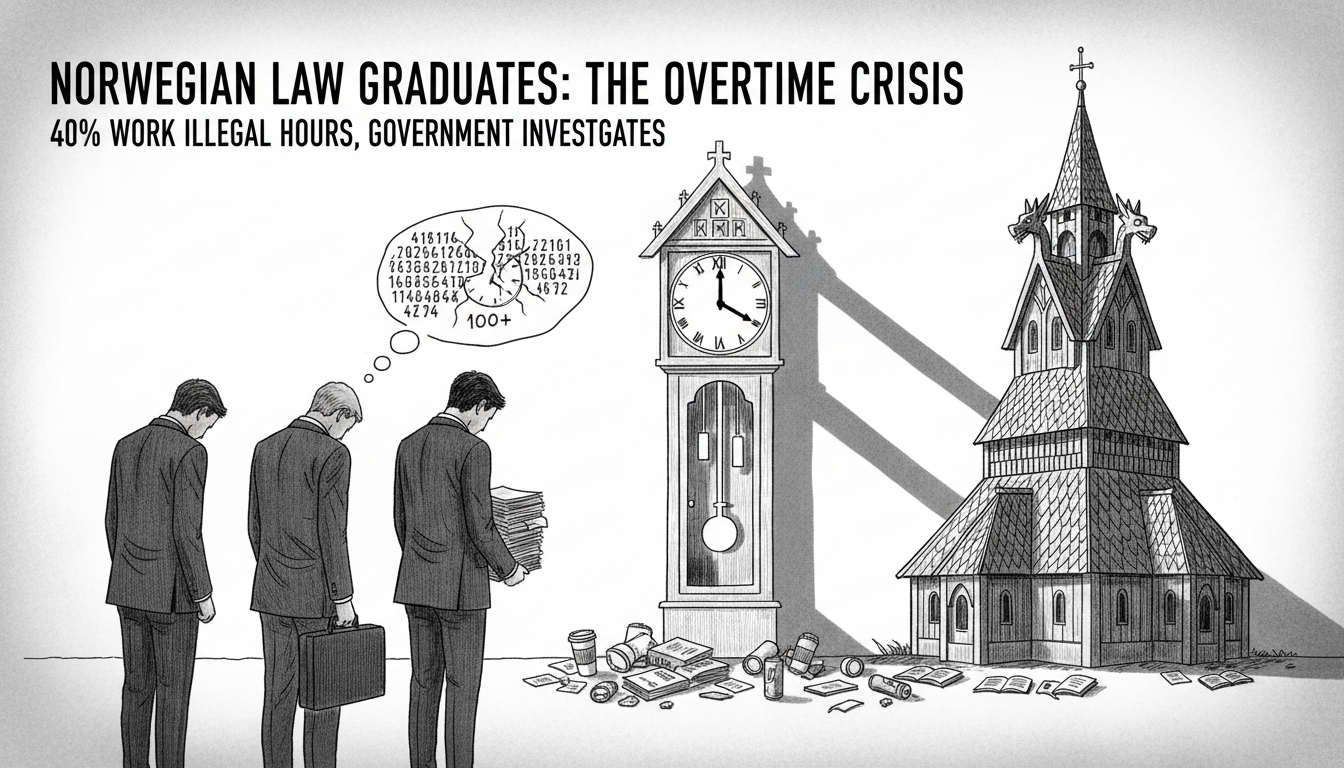Four out of ten junior lawyers in Norway's largest firms work illegal hours according to new findings. A recent survey reveals widespread violations of national labor regulations. One junior attorney reportedly worked 100.5 hours during a single week. These excessive schedules raise serious concerns about workplace standards in Norway's legal sector.
The Norwegian Lawyers' Association conducted the research among its private sector members. Their investigation uncovered troubling patterns across major law firms. Twenty-five percent of junior lawyers reported regularly exceeding legal work limits. Thirteen percent admitted to frequently working beyond the 69-hour weekly maximum.
Astrid Rød leads the Young Lawyers association within the Norwegian Bar Association. She expressed strong concerns about the findings. Junior lawyers are new to the profession and need proper guidance. Even with their strong work ethic, firms must prevent excessive schedules. Management bears clear responsibility for compliance with labor laws.
Sverre Bromander serves as president of the Norwegian Lawyers' Association. He described the survey results as deeply concerning. Such workloads cause exhaustion and health risks. They may also compromise legal work quality and client service standards. The legal profession must address these systemic issues promptly.
The survey reached 973 junior lawyers working in private practice. About twenty-nine percent responded to the research questionnaire. Approximately one in five respondents admitted to inaccurate time recording. They reported shifting hours between days to avoid appearing non-compliant.
Bromander emphasized that time records must reflect actual work periods. The rules exist for important reasons and cannot be manipulated. The Norwegian Labour Inspection Authority has now launched an investigation. This follows previous media reports about working conditions in law firms.
Norwegian Work Minister Kjersti Stenseng called the findings serious and unacceptable. The government expects all employers to follow national labor regulations. Norway maintains strict worker protection laws for good reason. The legal profession should exemplify compliance with these standards.
Law student Solveig Brunvoll studies at the University of Oslo. She anticipates demanding schedules when entering criminal law practice. Many law students discover during their studies whether they suit high-pressure environments. The current generation may have different expectations about work-life balance.
Brunvoll hopes increased attention will drive meaningful change. When firms consistently require excessive overtime, they likely need more staff. Today's law students may push for better working conditions than previous generations.
Rød acknowledges that legal work involves naturally demanding periods. Employers must ensure balanced schedules with quieter times for recovery. Young lawyers generally enjoy their work and find satisfaction in their cases. The profession offers intellectual challenge and meaningful engagement.
The Norwegian legal sector faces a crucial moment for workplace reform. International readers should understand Norway's strong worker protection traditions. These findings contradict the country's reputation for balanced work cultures. The situation highlights how professional pressures can override legal protections.
Legal professionals worldwide face similar challenges with billable hours and client demands. Norway's transparent approach to workplace issues sets an important example. The current scrutiny may lead to improved conditions across the Nordic legal sector.

